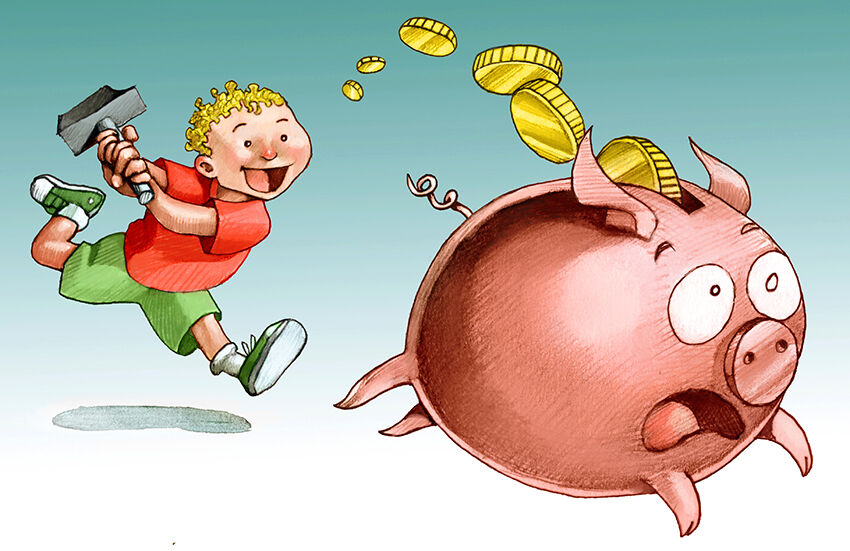Kids and Money
Published 3:00 am Monday, January 30, 2023

- Hunting for the piggy bank
Spending is lots of fun, but learning how to handle money wisely can be tough – especially for people who were never taught the fundamentals. By starting when your kids are young, using age-appropriate tactics, you can help them learn how to handle money when they get older – and hopefully avoid some of the mistakes you’ve made through the years.
Trending
Start Small
Financial goals for children shouldn’t start out as a big deal. They may save their spare change for a piece of candy or a cheap toy, and you can start teaching them that it’s a good idea to save their money to buy bigger things later. One simple, time-tested idea is getting your child a piggy bank, or even just a small cardboard box to keep their savings. The important thing is having a special place to set aside money for the future. You might even help them make a simple system for separating their savings into different categories.
Open an Account
Once your child has saved enough money, consider opening a bank account for them. Many banks and credit unions offer special accounts for children to help them learn to be good savers. As your child ages, their goals — and your involvement in their financial decisions — can become bigger and more important. They should save with a purpose in mind. Their bank account should be for a specific goal, such as saving for college or buying a car. Many parents choose to match their children’s contributions as an incentive to save their money.
Teach Principles
Finally, you should work toward teaching your children the basic principles of handling money. They should learn that when they get money, they should assign it a purpose at the outset – setting aside some for saving, some for giving to charity, and some for spending on themselves. The specific numbers involved aren’t as important as the principles involved. Money ought to be handled with the end goal in mind, not simply spent without any thought to what the future might hold. You can also use money to teach other life lessons that fit with your family’s values. Showing children how their financial decisions can help others – through giving to your church or your favorite non-profit organizations, for example – can be a good way to teach them things that are far more important than cash.





